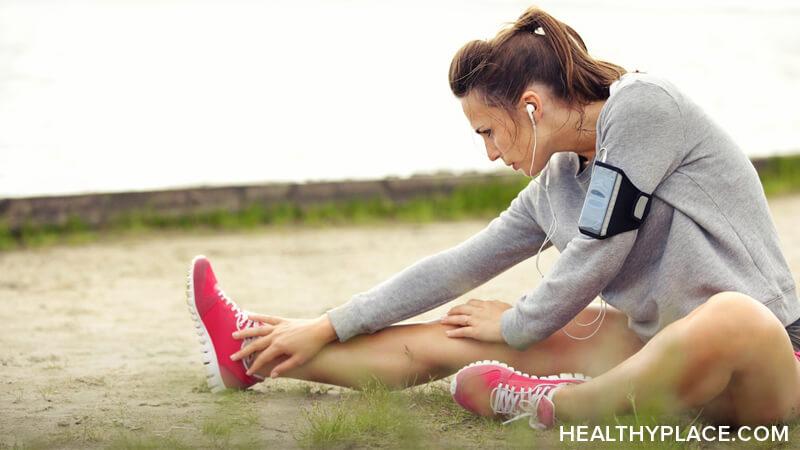Can Exercise Help You Cope with Anxiety?

Does exercise help you cope with anxiety? You've heard it before. You've been told to exercise to help your anxiety. But how are you supposed to do that when you have a million things on your mind? You don't get much sleep, you are often moody, and you can't seem to concentrate on anything. Exercise is the last thing you are thinking about and the last thing you want to do.
Personally, I know this is something that I used to often feel. I also once dealt with physical symptoms of anxiety that resulted in multiple emergency room visits. Because my chronic anxiety was often making it difficult to function, I decided to focus my efforts on identifying activities that helped me to feel better. Exercise was one of these activities. Ultimately, I decided to take control of what I could, and I started exercising daily.
Noticeably, my anxiety symptoms decreased, and I started to feel better. My mood improved and I felt less irritable. I also started to sleep better. I experienced fewer panic attacks, fewer headaches, and less muscle tension. As a result, exercise has become one of the most powerful tools for anxiety in my toolbox.
How Does Exercise Help Anxiety?
Exercise helps you cope with anxiety because it stimulates the release of endorphins which helps to improve your mood. It also decreases stress hormones and reduces muscle tension in the body. Overall, exercise can help to boost your confidence and improve your mental resilience. And, of course, the physical health benefits are undeniable. So how can you make sure to exercise, even when you really don't want to?
Tips for Using Exercise to Help You Cope with Anxiety
- Make it a priority -- Schedule exercise into your day. Start with scheduling at least 30 minutes of physical activity, and make sure it is something in your schedule that you adhere to. Because this is something that I set as a priority for myself, I make sure to block out a specific period of time for it and then I schedule other activities around this. You make sure that you attend doctor appointments or meetings -- why shouldn't exercise be a priority as well?
- Do something that you enjoy -- One of the common issues that I hear is that exercise is not enjoyable. I stress the importance of finding something that you enjoy. Whether it's playing basketball, walking, weightlifting, or something else entirely, doing something that you enjoy will not only help you to look forward to it, it will increase the chance that you will actually do it.
- Enlist a workout buddy -- Work out with a partner who helps to hold you accountable. My husband is my workout partner and we encourage and motivate each other, especially on days that we may not be feeling as eager to exercise. Additionally, by having a workout partner, not only will you then have a cheerleader in your corner, but you will also see working out as a fun activity since you are doing it with a friend.
- Set goals for yourself -- I am a firm believer in setting goals. Setting goals gives you something to work towards and doing so gives you something to focus your attention on -- instead of anxiety. No matter what your fitness level is, aim towards something, whether it is walking for 10 minutes or running 10 miles.
Being physically active has benefits for both your mind and body. Use these strategies to maximize the benefits of adding exercise into your life for your peace and wellbeing.
How has exercise helped you cope with anxiety? What exercises do you like to do? Share your comments below.
APA Reference
Bermio-Gonzalez, R.
(2020, February 11). Can Exercise Help You Cope with Anxiety?, HealthyPlace. Retrieved
on 2026, February 24 from https://www.healthyplace.com/blogs/treatinganxiety/2020/2/can-exercise-help-you-cope-with-anxiety